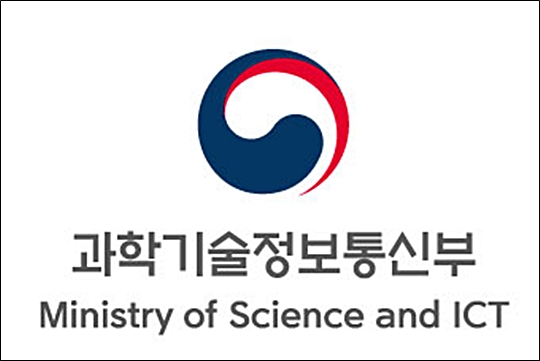Ministry of Science and ICT announced on the 24th the ‘Blockchain Technology Diffusion Strategy’ that included the intention of fully adopting the blockchain and fostering DID at the 16th general meeting of the 4th Industrial Revolution Committee under the President.
Accordingly, the Ministry of Science and ICT said it would proceed Full introduction of 7 blockchain areas, activation of distributed identification service as infrastructure of non-face-to-face economy, establishment of integrated support system for blockchain companies, development of core technologies for next-generation blockchain, creation of blockchain innovation ecosystem, creation of blockchain innovation ecosystem.
First of all, the seven areas in which blockchain is fully introduced are as follows; ▲ Blockchain-based online voting system ▲ Mobile blockchain donation platform ▲ Blockchain based welfare benefit business platform ▲ Blockchain platform that can check the entire process, such as bidding between the Korea Energy Authority, the Korea Power Exchange, power generation companies, and new and renewable power generation companies ▲ Blockchain-based regional digital currency using the demonstrative case of Busan Regulatory Free Zone ▲ Prevention of forgery of real estate information by applying blockchain technology, real-time sharing and automation of transaction process ▲ Establishing an integrated customer management system based on a blockchain-based friendship service to solve customer inconvenience such as postal mail, deposit, and insurance. Next year, the ministry plans to investigate the areas that can be introduced into public and private services in order to continue discovering areas where blockchain can be effectively applied.
In addition, it is planning to activate a distributed identity verification (DID) service to provide identity verification online and to directly manage personal information. To this end, the ministry has established principles for the activation of distributed identification technology. The principle is to find and support private services by putting the convenience of the people first and making the most of the private ecosystem. When using DID-based public services, it is planned to build an integrated public platform so that there is no inconvenience in installing and using separate apps for each institution.
Ministry of Science and ICT supports interworking with DID platforms and linking with other identity authentication technologies in order to respond to the emergence of new authentication methods due to the revision of the Electronic Signature Act, and for pilot projects to discover innovative DID services and to spread private ecosystems. It will operate a private-public joint DID consultative body.
It also will build a comprehensive corporate support system to help difficult blockchain companies without a profit model. The ministry plan to support the use of service-type blockchain (BaaS) to help small and medium-sized businesses and business companies easily implement business ideas with blockchain technology, and to develop services by discovering specialized areas of domestic BaaS platform.
To create a new business model, the ministry promotes networking, consulting, and technology verification of demand companies, and establishes a technology innovation support center for large-scale experimental environments and technology verification to improve service performance. It aims at helping promising blockchain companies make their way into overseas markets, tailored to the characteristics of each country.
Through this, Ministry of Science and ICT seeks to close the technological gap with developed countries such as the United States by 2-3 years, and to secure original technologies and industrial convergence technologies to strengthen the blockchain ecosystem. Development to overcome existing limitations of blockchain technology such as speeding up transaction processing and large-scale data management and linking with leading technologies of the 4th industrial revolution such as artificial intelligence and IoT, and development of convergence technology applicable to industries is in proceed.
In addition, it will respond to global standards to expand Korea’s market competitiveness by supporting international standardization of DID technology.
The ministry, along with related ministries, derives concrete improvement measures to promote actual improvement and supports the use of the regulatory sandbox system for projects with high urgency even before regulatory improvement. In order to reduce the trial and error of companies and institutions that want to introduce blockchain technology, guidelines for business and development and security are also produced for convenience. It will help the departments which are difficult to service due to institutional difficulties or which are prone to spread across the country to demonstrate in Busan Free Zone and will operate a pilot project divided into public and private. In addition, it will increase the proportion of multi-year support projects to spread the excellent project.
In addition, for the purpose of educating high-level talents, five blockchain graduate research center support targets will be expanded by 2022, and the ‘blockchain complex education center’ course will be shifted to advanced courses starting next year. It also provides a guide for systematic workforce training and operates an integrated workforce training system to check the education history of experts. The blockchain promotion week will be expanded and a private and public forum for technology and policy will be operated to discuss difficulties in private companies.
Choi Ki Young, Minister of Science and ICT, said, “If we take advantage of the crisis of Corona 19 as an opportunity, we can make a leap forward as a leading blockchain company in the hyper-connected and face-to-face era. In order to not miss this golden time, we will systematically support it through a blockchain technology diffusion strategy.”
관련
기사제보 및 보도자료: press@blockmedia.co.kr
▶ 블록미디어 유튜브 바로가기 https://www.youtube.com/blockmedia
▶ 블록미디어 텔레그램 바로가기 https://t.me/blockmedia
▶ 블록미디어 페이스북 바로가기 https://www.facebook.com/blockmediakorea/


